Filter by
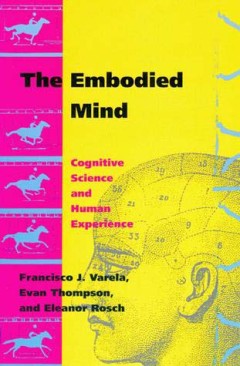
The Embodied Mind : Cognitive Science and Human Experience
A new edition of a classic work that originated the "embodied cognition" movement and was one of the first to link science and Buddhist practices.OCLC-licensed vendor bibliographic record.
- Edition
- 2nd ed.
- ISBN/ISSN
- 9780262285476
- Collation
- 1 online resource (390 pages)
- Series Title
- -
- Call Number
- -
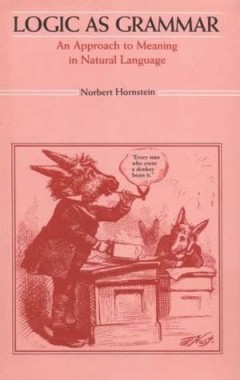
Logic as Grammar: An Approach to Meaning in Natural Language
How is the meaning of natural language interpreted? Taking as its point of departure the logical problem of natural language acquisition, this book elaborates a theory of meaning based on syntactical rather than semantical processes. Hornstein argues that the traditional neoFregean approach taken by Davidson, Barwise and Perry, and Montague, among others--an approach that makes use of semantica…
- Edition
- 1
- ISBN/ISSN
- 9780262275729
- Collation
- -
- Series Title
- -
- Call Number
- -
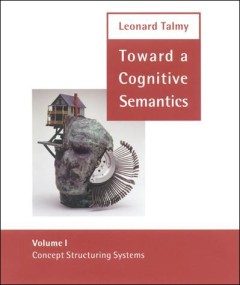
Toward a Cognitive Semantics: Concept Structuring Systems
Rev. and expanded version of papers, essays, etc. published during the last twenty years; cf. v. 1, p. 6."A Bradford book."In this two-volume set, Talmy approaches the question of how language organizes conceptual material both at a general level and by analyzing a crucial set of particular conceptual domains: space and time, motion and location, causation and force interaction, and attention a…
- Edition
- -
- ISBN/ISSN
- 9780262284660
- Collation
- 1 online resource (viii, 565 pages) :illustrations.
- Series Title
- -
- Call Number
- -
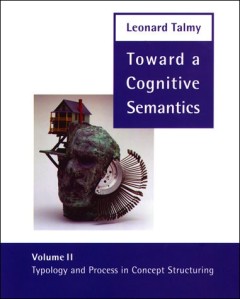
Toward a Cognitive Semantics: Typology and Process in Concept Structuring
A Bradford book."In this two-volume set, Talmy approaches the question of how language organizes conceptual material both at a general level and by analyzing a crucial set of particular conceptual domains: space and time, motion and location, causation and force interaction, and attention and viewpoint.One of a two-volume set defining the field of cognitive semantics. Leonard Talmy approaches t…
- Edition
- -
- ISBN/ISSN
- 9780262284677
- Collation
- 1 online resource (viii, 495 pages) :illustrations.
- Series Title
- -
- Call Number
- -
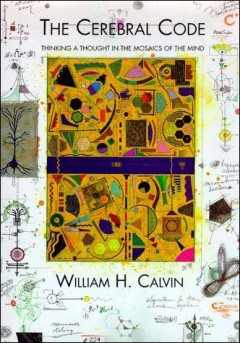
The Cerebral Code: Thinking a Thought in the Mosaics of the Mind
"A Bradford book."The Cerebral Code proposes a bold new theory for how Darwin's evolutionary processes could operate in the brain, improving ideas on the time scale of thought and action. Jung said that dreaming goes on continuously but you can't see it when you're awake, just as you can't see the stars in the daylight because it is too bright. Calvin's is a theory for what goes on, hidden from…
- Edition
- -
- ISBN/ISSN
- 9780262269711
- Collation
- 1 online resource (256 pages) :illustrations
- Series Title
- -
- Call Number
- -
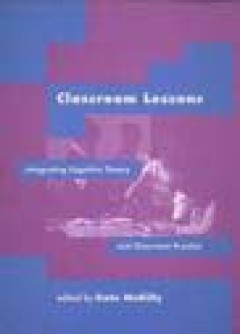
Classroom Lessons: Integrating Cognitive Theory and Classroom Practice
"A Bradford book."A timely complement to John Bruer's Schools for Thought, Classroom Lessons documents eight projects that apply cognitive research to improve classroom practice. The chapter authors are all principal investigators in an influential research initiative on cognitive science and education. Classroom Lessons describes their collaborations with classroom teachers aimed at improving …
- Edition
- -
- ISBN/ISSN
- 9780262279482
- Collation
- 1 online resource (xvi, 317 pages) :illustrations
- Series Title
- -
- Call Number
- -
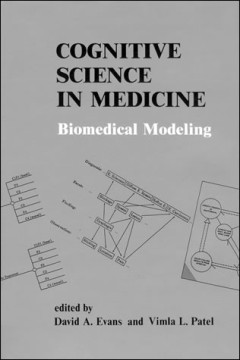
Cognitive Science in Medicine: Biomedical Modeling
Cognitive Science in Medicine presents current research that focuses on issues and results in applying techniques from cognitive science to problems in biomedicine. "A Bradford book."OCLC-licensed vendor bibliographic record.
- Edition
- -
- ISBN/ISSN
- 9780262315791
- Collation
- 1 online resource (xxi, 421 pages) :illustrations
- Series Title
- -
- Call Number
- -
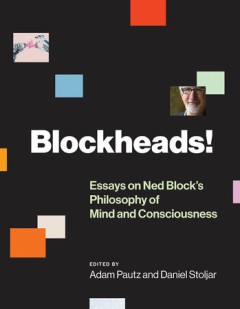
Blockheads! :essays on Ned Block's philosophy of mind and consciousness
New essays on the philosophy of Ned Block, with substantive and wide-ranging responses by Block. Perhaps more than any other philosopher of mind, Ned Block synthesizes philosophical and scientific approaches to the mind; he is unique in moving back and forth across this divide, doing so with creativity and intensity. Over the course of his career, Block has made groundbreaking contributions to …
- Edition
- -
- ISBN/ISSN
- 9780262348973
- Collation
- 1 online resource (vii, 634 pages).
- Series Title
- -
- Call Number
- -
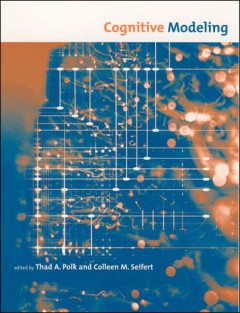
Cognitive Modeling
Computational modeling plays a central role in cognitive science. This book provides a comprehensive introduction to computational models of human cognition. It covers major approaches and architectures, both neural network and symbolic; major theoretical issues; and specific computational models of a variety of cognitive processes, ranging from low-level (e.g., attention and memory) to higher-…
- Edition
- -
- ISBN/ISSN
- 9780262281744
- Collation
- 1 online resource (xxi, 1270 pages) :illustrations.
- Series Title
- -
- Call Number
- -
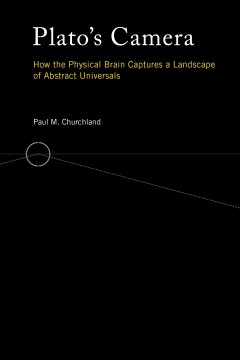
Plato's camera :how the physical brain captures a landscape of abstract unive…
A noted philosopher draws on the empirical results and conceptual resources of cognitive neuroscience to address questions about the nature of knowledge. In Plato's Camera, eminent philosopher Paul Churchland offers a novel account of how the brain constructs a representation--or "takes a picture"--of the universe's timeless categorical and dynamical structure. This construction process, which …
- Edition
- -
- ISBN/ISSN
- 9780262302869
- Collation
- 1 online resource (x, 289 pages, 12 unnumbered pages of plates) :illustrations (some color)
- Series Title
- -
- Call Number
- -
 Computer Science, Information & General Works
Computer Science, Information & General Works  Philosophy & Psychology
Philosophy & Psychology  Religion
Religion  Social Sciences
Social Sciences  Language
Language  Pure Science
Pure Science  Applied Sciences
Applied Sciences  Art & Recreation
Art & Recreation  Literature
Literature  History & Geography
History & Geography